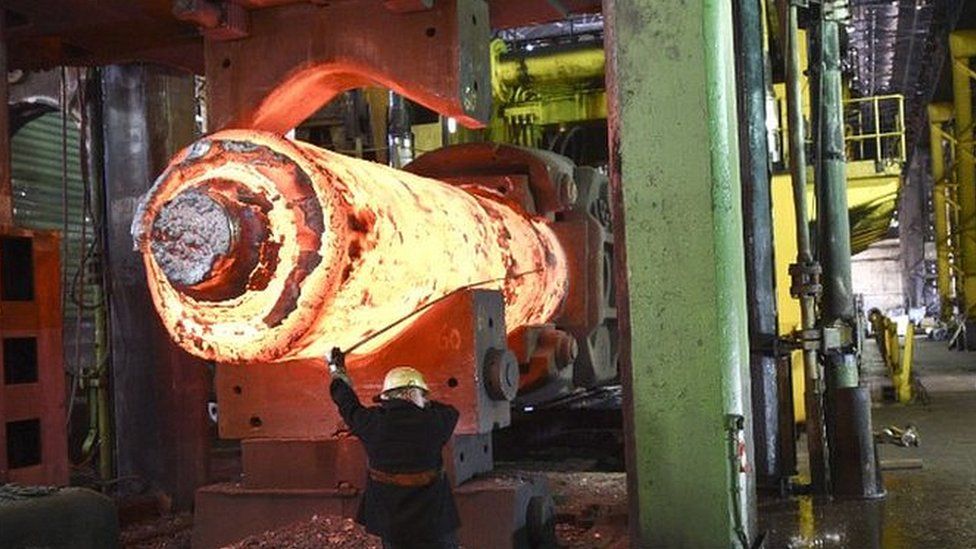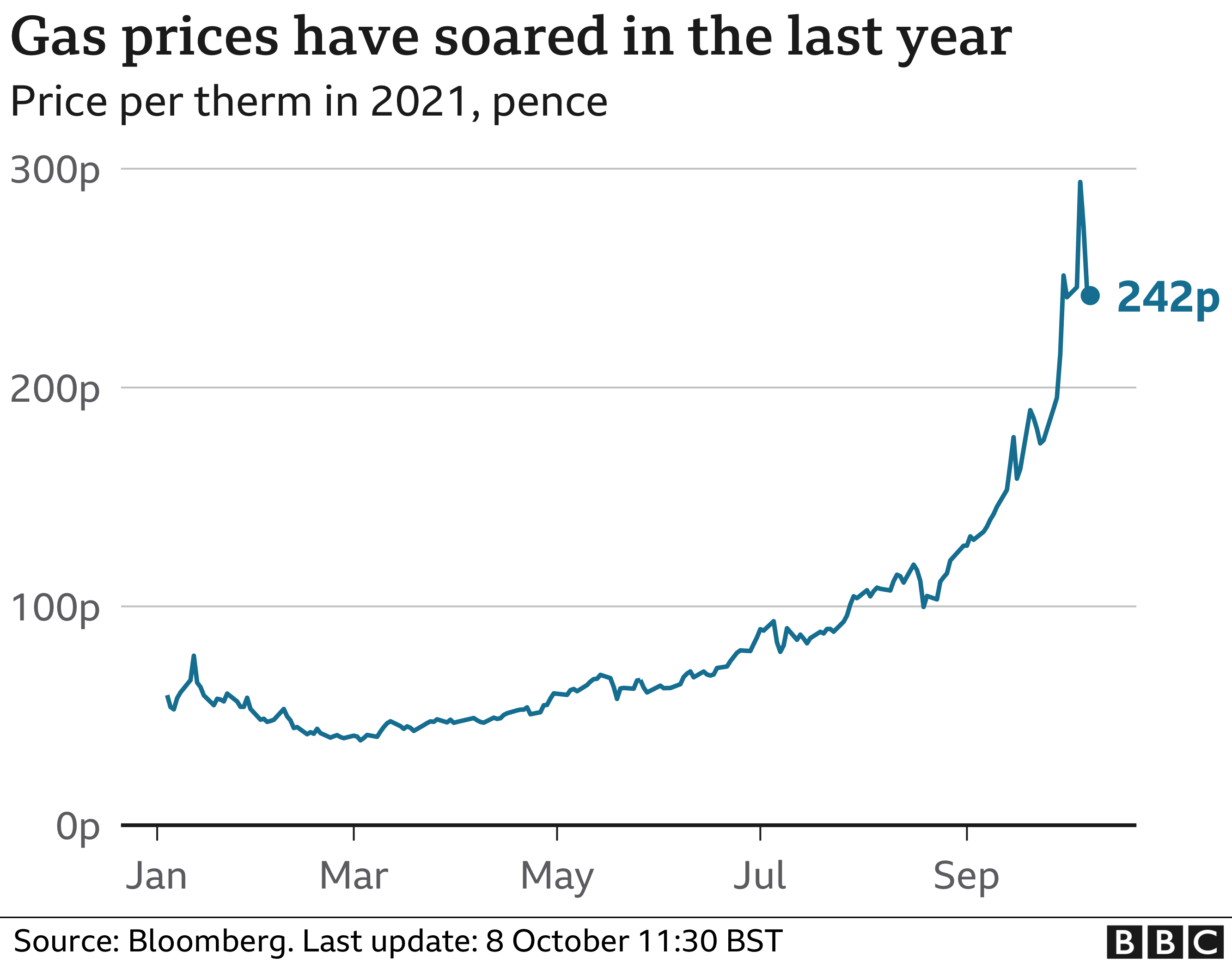
The government is under increasing pressure to support industries struggling with rising energy bills, as several Conservative MPs have joined Labour and industry calling for action.
Business Secretary Kwasi Kwarteng met leaders from heavy industry on Friday but they failed to find any solutions.
Labour has accused the government of being in denial about gas prices, which have risen 250% since January.
Tory MP Miriam Coates said the steel industry faced “serious threats”.
Natural gas prices are at record highs as economies around the world begin to recover from the Covid pandemic.
Domestic customers are partly protected from sharp rises by a price cap, although energy regulator Ofgem has warned that households will see further “significant rises” in the spring.
Energy suppliers have said the price cap is “not fit for purpose” and warned that customers could face increased costs from energy firms going out of business.
The British Chambers of Commerce has proposed that a similar cap is put in place for small and medium-sized businesses.
In response to the idea of a price cap for industry, a government source said: “We’re working with industry on their suggestions,”
Andrew Bridgen, Conservative MP for North West Leicestershire, said he would support government intervention to help energy-intensive industries in the short term.
“However, what we need… is a sustainable long term energy policy based on diverse sources of supply,” he said.
Conservative MP Miriam Cates said soaring energy costs had become “acute”.
She urged the government to take action and consider all options to protect the steel industry, which she said was facing “serious threats”.
“In the long-term, it’s important that the government sees steel as an industry… crucial to our future – we can’t achieve our infrastructure commitments or net-zero without steel,” she said.
Jo Gideon, Conservative MP for Stoke-on-Trent Central, said “potters, brickmakers, and materials scientists” needed government support to decarbonise but stay competitive.
Her comments came as a trade body warned ceramics businesses may be forced to scale back or stop production due to the rise in gas prices.
‘We need action now’
After meetings with Mr Kwarteng on Friday, UK Steel boss Gareth Stace said the government had failed to find solutions to halt soaring energy prices.
“We can’t wait until Christmas and beyond. Or even a few weeks. We need action now, it needs to be swift, decisive action,” Mr Stace said.
He said Mr Kwarteng had listened but had provided “no immediate solutions or guarantees”.
The UK Steel director general said he was “baffled” because governments in the rest of Europe had stepped in to support industry – although they faced lower energy costs than in the UK.
Representatives from energy-intensive sectors including paper, glass, cement, lime, ceramics, chemicals and steel were at Friday’s talks with the business secretary.
After the meeting, the Energy Intensive Users Group (EIUG) chair Dr Richard Leese said the government had made “positive first steps to develop practical solutions”.
He told BBC Breakfast that measures to help tackle rising costs were needed “absolutely right now”, saying that businesses were operating in “unprecedented conditions”.
He said that all energy intensive industries were equally affected and “intrinsically linked” throughout the supply chain so “if one industry sector is affected we’re all affected”.
The measures put to Mr Kwarteng included winter cost containment measures, reducing the proportion of network costs paid by energy intensive industries and setting out emergency measures should any of our energy intensive plants need to shut down rapidly.

The price of wholesale gas has soared since the start of the year. And the UK has lower levels of gas stored than other European countries, which could help cushion price volatility.
Domestic customers’ bills are partly protected from these sharp rises by a price cap, managed by the regulator Ofgem, which limits how far and how fast bills can rise.
Nevertheless, UK households have felt the impact after the price cap was raised at the start of October.
Paul Richards, chief executive of Together Energy and Bristol Energy which have around 300,000 customers, told BBC Radio 4’s Today programme that while he thought a price cap was needed to protect customers but the current mechanism was “not fit for industry and not fit for customers”.
Derek Lickorish, chairman of Utilita – which has 800,00 customers, agreed that the cap needed to change and said there would be a huge cost passed on to consumers from energy suppliers going out of business.
The cap is revised twice a year and is next due to be changed in April, although Mr Lickorish said he would like to see it updated four times a year.
It applies to households in England, Scotland and Wales this month.
Households in Northern Ireland have also seen a recent sharp rise in their bills, but they are not protected by the energy price cap for Great Britain.
With gas prices at record highs firms that supply the domestic market – covered by the price cap – are running into trouble because they have agreed to sell energy at less than the price it now costs for them to buy it.
Last month nine of these companies went out of business, forcing 1.7 million customers to move to new suppliers.

- GIRL, WOMAN, OTHER: Listen along to Bernardine Evaristo’s Booker Prize-winning novel
- AUTUMN IS HERE: What is the obsession with all things autumn, Halloween and pumpkin spice?

